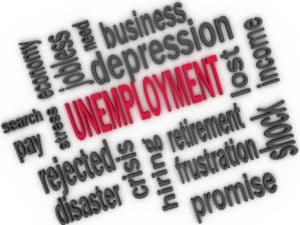
The bad news: The 6.7% unemployment rate in December is nearly twice that of the pre-pandemic rate of 3.5%.
More bad news: The ranks of America’s long-term unemployed continue to swell.
Although we applaud the 12.3 million jobs that have come back since the highpoint of unemployment in April, nearly 4 million Americans have been out of work for at least 27 weeks. Thus, becoming official members of the long-term unemployment club, whose numbers have reached a seven-year high.
The cost of long-term unemployment
In addition to the obvious pitfall of income loss, prolonged unemployment totes a bushel full of harmful side effects that impact individuals and families caught in its ruthless wake. Physical and mental well-being suffer as joblessness stretches on. Mounting worries over finances and loss of healthcare benefits heave stress upon breadwinners and their dependents.
The longer folks go without a job, the more difficult it is to find work, earn a higher wage, and prevent a loss of valuable skills. A lack of purpose and direction can inflict deep wounds to a person’s confidence, igniting a raging case of self-doubt that can further hinder the pursuit of gainful employment.
Breaking free of the vicious cycle
Enough about the harmful impact of long-term unemployment. It’s time to jump in with both feet, and grab this jobless stint by the horns. Not to insinuate folks have been passively waiting for a job to find them. But let’s consider these strategies meant to take aim at the grim reality of long-term unemployment.
- Resist the natural urge to be defensive about your situation
While being jobless may well be a sore spot, keep it to yourself. Choose not to bristle when the situation comes up in casual conversations or potential employment discussions. You are not the only person, nor is yours the only family navigating these uncertain waters.
John M. McKee of Business Success Coach Network suggests folks answer the inevitable, “So, where are you working now?” question with a rundown of what positive things you’ve accomplished while in pursuit of a paying position. The conquering of long-overdue home projects, extensive gardening and preserving food for the family, or a stretching of your mind with an online class—all worthwhile pursuits that demonstrate effective use of your time and resources during this without-a-paying-job period.
- Strive to remain positive
Banish the mindset, or even worse, any spoken sentiments resembling, “I only know how to do one thing, that’s it.” Instead, reframe your past job-related experience like this. “While I’ve always done this type of thing in the past, I know I can use those same skills to . . .”
Yes, it’s crummy that despite all of your efforts, you’ve graduated into the ‘long-timers’ club. The loss is tangible, and the rejection carries a wasp-sized sting, but a negative attitude will only further hinder your job search.
- Don’t hold out for your number one choice
A job is a job. Rather than turn down an offer because it doesn’t follow your preferred career path or seems beneath someone with your skillset, accept whatever employment opportunities come your way. Believe the maxim that it’s easier to get a job when you already have one –because it is.
- R. Mazzotta wants to be by your side as you take the next step toward successful employment. For over 50 years, we’ve been placing motivated candidates like you into successful jobs. Review our latest job openings and give our team of employment specialists a call today.
